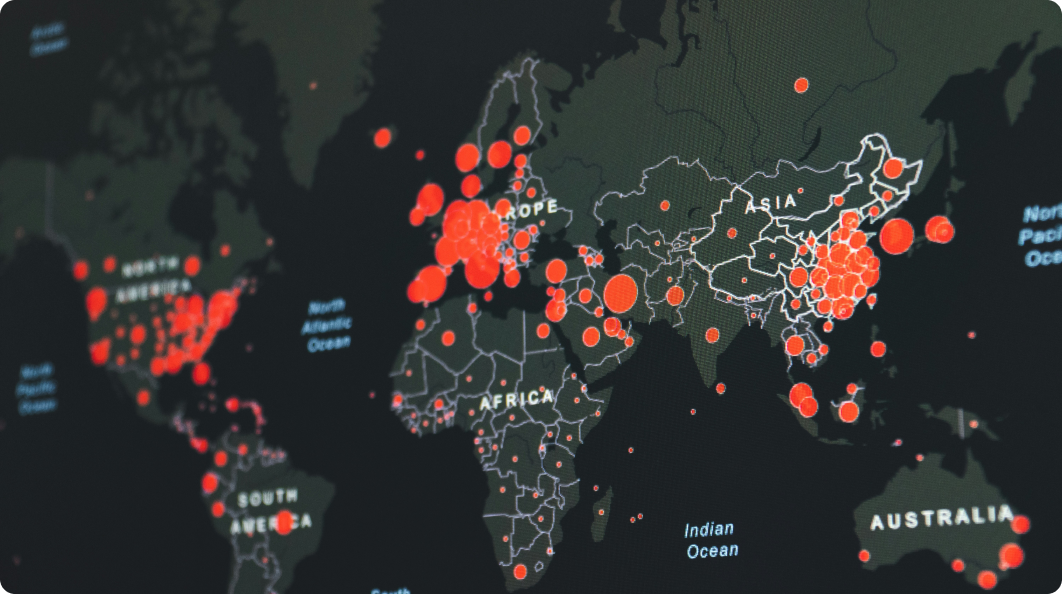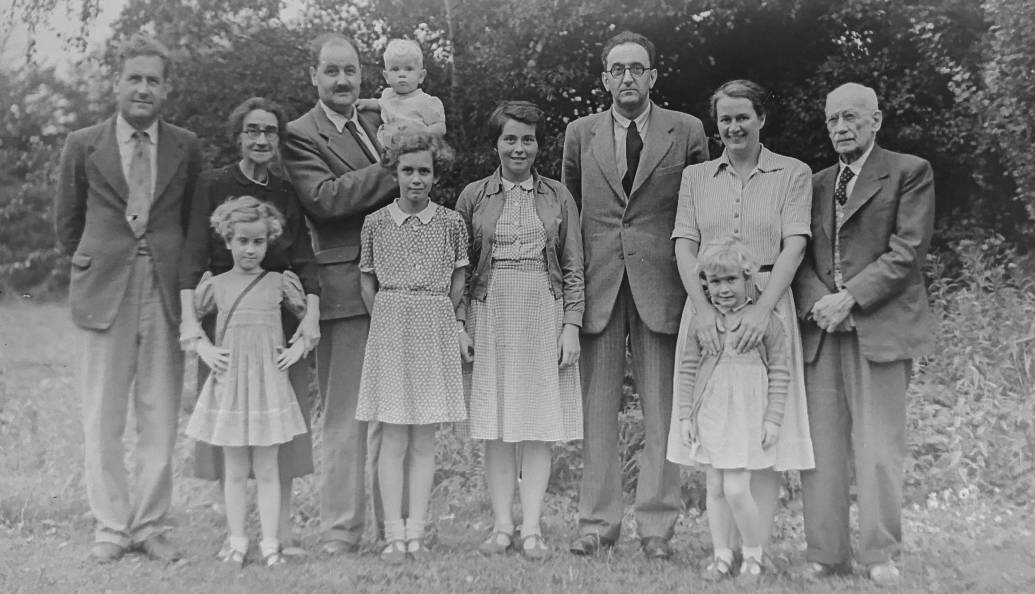About
Our mission is to enable access to mental health for everyone.
WHO Statistics
People seek help after an average of 8 years.
Therapists fewer than 1 per 10,000 people.
Mental health costs are $5 trillion annually.

284 million
264 million
79 million
164 millions
195 million
46 million
24 million
16 million
48 million
Systemic Problems
Mental
We provide every person in the world with immediate, real-time access to free mental health support, utilizing the innovative combination of artificial intelligence and the Open Dialogue therapeutic approach. By embracing the principles of dialogue and polyphony, we recognize mental well-being as a fundamental human right and are committed to its global promotion by providing access to scientifically proven effective therapy. Our platform supports communication in 120 languages, making our services accessible to a diverse global audience. We also collaborate with thousands of therapists worldwide trained in the Open Dialogue, significantly enhancing our global support capabilities.
Also, we offer flexible enterprise solutions, including SaaS and API solutions, tailored to enhance employee well-being and improve organizational health. Learn more
Our ultimate goal is to guide people from chaos to clarity, enhancing mental health worldwide.

Mental AI
The heart of our platform, Mental AI, is designed to fully harness the potential of the Open Dialogue approach. By utilizing natural language processing algorithms, the system builds and analyzes dialogues in real-time, identifying key moments for therapeutic intervention. Mental AI is equipped with deep learning tools that allow it to autonomously adjust therapeutic strategies in response to subtle changes in user behavior and mood.
Mental AI is fundamentally based on large open-source language models, which are characterized by their extensive training on diverse and expansive datasets. These models provide a robust foundation that ensures high levels of transparency and control over data, distinguishing our system from proprietary models. The utilization of open-source frameworks allows for continuous peer review and collaboration within the scientific community, fostering innovation and reliability in our therapeutic applications.
The architecture of Mental AI leverages the scalability and adaptability of open-source models to maintain cutting-edge performance in natural language understanding and generation. This approach enables our system to integrate the latest advancements in artificial intelligence research, ensuring that therapeutic strategies remain effective and responsive to the nuanced needs of users. Additionally, the open-source nature of our models facilitates rigorous auditing and validation processes, which are essential for maintaining the ethical standards and privacy requirements inherent in mental health applications.
The fine-tuning of our models is carried out by a team of experts in psychiatry, psychology, and community therapy, all of whom are experienced practitioners of the Open Dialogue Approach. This fine-tuning process ensures that the therapeutic interventions provided by Mental AI are not only theoretically sound but also practically effective, drawing on the extensive experience and deep understanding of our multidisciplinary team. Each expert contributes their specialized knowledge to refine the AI's capabilities, ensuring that the system can deliver personalized and contextually appropriate support to users.
By employing these large open-source language models, Mental AI can deliver personalized therapeutic interventions that are both scientifically grounded and ethically sound. The system's capacity to analyze and interpret complex communication patterns in real-time is augmented by the transparency and flexibility afforded by open-source technologies, thereby enhancing the overall efficacy and integrity of our mental health support platform.

Open Dialogue
Open Dialogue is an innovative therapeutic approach developed in the 1980s in Finland by a team of clinicians, including Professor Jaakko Seikkula. It focuses on engaging the patient's family and community in treating a wide range of mental disorders—from minor issues to severe cases like psychosis. A distinctive feature is its dialogical nature, where the therapy involves not only the patient but also their close ones, creating a space for open and sincere communication. This collective decision-making by all participants enhances engagement and the effectiveness of the intervention.
Open Dialogue has gained international recognition due to its effectiveness, often leading to faster recovery, reduced need for hospitalization, and lesser use of antipsychotic medications for thousands of people worldwide. This method makes a significant contribution to the development of psychiatry and psychotherapy by offering humane and effective tools for treating mental disorders.
Extensive scientific research by scientists from many countries has confirmed the method's effectiveness, particularly showing excellent results in reducing long-term hospitalizations and better symptom management compared to traditional treatment approaches. Open Dialogue promotes greater patient and family satisfaction with the care received, gaining wide recognition in the international scientific community and contributing to the growing interest and adoption of the approach worldwide.
Four Key Principles
Immediate Help
We respond to crises immediately as the need arises. As a basis, we offer therapeutic dialogues using our chat AI. When additional support is deemed necessary, we initiate online therapeutic sessions with our certified therapists trained in the Open Dialogue Approach. In emergency situations, we immediately direct the user to the nearest emergency services.
Social Network Perspective
We always recommend incorporating clinicians, family members, friends, co-workers, and other relevant persons into a joint discussion when users start online therapeutic sessions with our therapists to enrich the therapy and enhance outcomes.
Tolerance of Uncertainty
We embrace uncertainty by encouraging open conversations and avoiding premature conclusions and treatment plans. Our Mental AI, human therapists, and the social network are encouraged to tolerate uncertainty. This approach allows for a more flexible exploration of problems and solutions, ensuring that they are best suited to the individual's situation.
Dialogue and Polyphony
We create a dialogue, or a sense of 'with-ness' rather than 'about-ness', by setting aside the clinical gaze and truly listening to what people say—not just what we think they mean. Dialogue is central to our therapeutic practice and essential in all interactions. Engaging diverse voices through dialogue and polyphony in Open Dialogue enhances understanding and improves therapeutic outcomes.

Timeline
Stage 1: Mikhail Bakhtin
1920sStage 2: Prof. Yrjö Alanen
1960sStage 3: Prof. Tom Anderson
1970sStage 4: Prof. Jukka Aaltonen
1980sStage 5: Prof. Jaakko Seikkula
1980s to the presentResearch
Professor of Psychotherapy at the University of Jyväskylä. One of the initiators of the Open Dialogue Approach. Author of many significant scientific studies.
Professor of Practical Philosophy at Nord University, where he significantly contributed to the field of practical knowledge and philosophy from 2001 to 2013. He has held academic positions in Norway, Sweden, and Germany, including guest professor at Gothenburg University and lecturer at Hochschule für Philosophie in Munich. Specializing in ethics, philosophical practice, and the philosophy of science, Lindseth is known for his work in health care ethics and philosophical counselling. He has been a member of several international boards and continues to teach and offer philosophical practice in Munich. Since the 1990s, he has been developing the Open Dialogue Approach.
Founder of the Polish Institute of Open Dialogue, Regina is recognized by Mental Health Europe as one of the top ten pioneers in mental health in Europe. She is a member of the expert group at the Polish Ministry of Health, working on strategic psychiatric reform programs, and is a member of the Human Rights Committee at Mental Health Europe. Regina has also served on the Advisory Council for Mental Health to the Polish Minister of Health and represented the Polish Ombudsman at the United Nations. In 2013, she completed the Open Dialogue course in Germany.
Specialist in psychiatry and psychotherapy for adults as well as for children and youth, has held key positions in several psychiatric institutions in Germany, since beginning his career in 1981. During that time he has been contributing significantly to both clinical practice and academic research. He became well known for his pioneering introduction of the Open Dialogue Approach (ODA) in psychiatric settings, especially in hospitals. He effectively adapted elements of the ODA to traditional therapeutic strategies, particularly concerning crisis intervention and severe mental health states as psychoses. Dr. Schütze is also an active member of multiple psychiatric and psychotherapy associations, offering training and supervision to promote his approach.
Specialist in psychiatry and psychotherapy, began her career in 1983. She has been working for many years at the Vivantes Klinikum Berlin-Neukölln, where she was engaged in introducing the Open Dialogue Approach (ODA) since 2010. After having graduated from the supervisor level family therapy training in Finland, she serves as a trainer and supervisor in the ODA.
Clinical psychologist with degrees in psychology and education from the University of Wrocław. Author of over 100 scientific publications. Dr. Wallner specializes in adult psychiatric psychology and is an associate professor at the Department and Clinic of Psychiatry at the Medical University of Silesia in Wrocław. With over 25 years of experience working in psychiatric and psychogeriatric units, Dr. Wallner has a deep understanding of mental health challenges and their implications for both individual well-being and societal productivity. She specializes in the prevention and diagnosis of neurodegenerative diseases, combined with expertise in cognitive rehabilitation. After completing training in family and network therapy in Germany, she serves as a trainer in the Open Dialogue Approach.
Specialist in Psychiatry and Environmental Therapy, former director of the MSWiA Hospital in Złocieniec. Dr. Giza has long served as the head of the Psychiatric Department in Kołobrzeg. She is an active member of the Mental Health Council at the Ministry of Health and the Polish Psychiatric Association. For years, she has played a crucial role in the implementation of community psychiatry in Poland and is deeply involved in national mental health reform. For her achievements and commitment to improving the quality of psychiatric care and patient life, Dr. Giza has been awarded the Silver Cross of Merit by the President of Poland, Lech Kaczyński. In 2017, she completed a course in the Open Dialogue Approach in Poland.
Specialist psychiatrist and certified community therapist. Since 2003, she has been professionally associated with the Institute of Psychiatry and Neurology in Warsaw, where she works in the First Psychiatric Clinic and the Community Therapy Center. Her professional career also includes collaboration with the "Blue Line", where she has served as a consultant physician since 2019. She is an active member of the Polish Psychiatric Association. Dr. Krawczyk has gained extensive professional experience through internships in the United Kingdom during her studies and specialization. She completed a four-year cognitive-behavioral therapy (CBT) program and training in the Open Dialogue Approach in Germany.
Psychiatrist and systemic family therapist based in Rome, with public service experience since 1991. In 2015, he began incorporating the Open Dialogue approach into his practice and, after graduating as a Trainer and Supervisor in Helsinki in 2018, he started offering seminars and training courses to promote the approach alongside his clinical work.